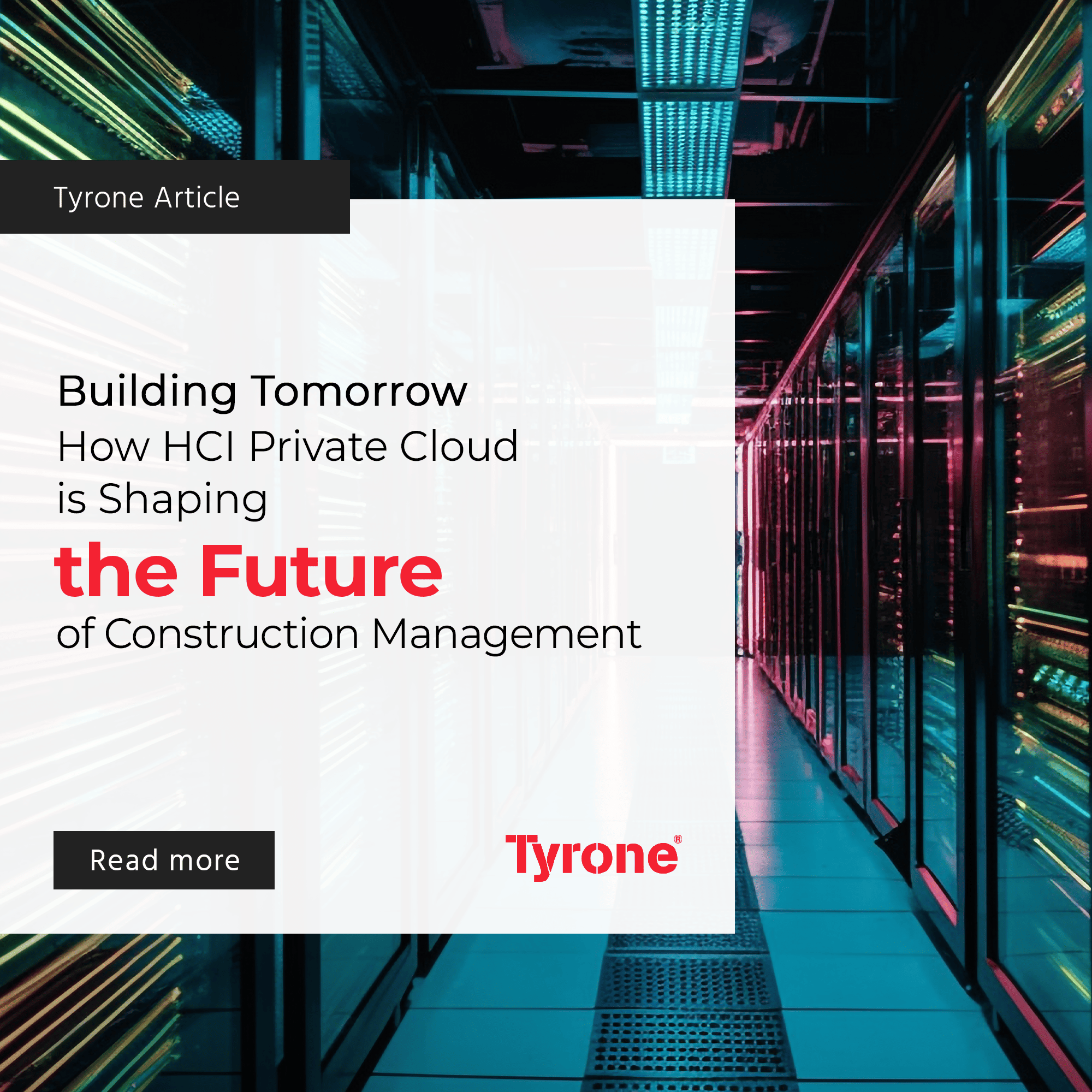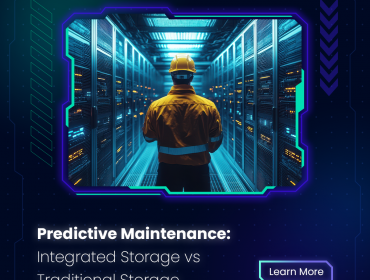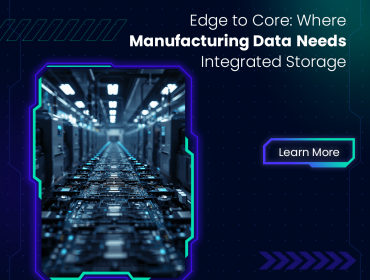The construction industry is undergoing a digital transformation, with innovative technologies reshaping project management, efficiency, and sustainability. Among these technologies, Hyper-Converged Infrastructure (HCI) in private cloud solutions is emerging as a powerful force, driving enhanced data integration, operational efficiency, and real-time decision-making. For stakeholders, embracing HCI private cloud isn’t just about adopting technology; it’s about rethinking how construction projects are managed and delivered in a fast-paced, competitive environment.
The Role of HCI in Private Cloud for Construction
Hyper-Converged Infrastructure (HCI) consolidates computing, storage, and networking into a single, unified system, managed centrally through software. This convergence eliminates the need for complex, disparate infrastructure systems, offering streamlined management and scalability for enterprises. In construction management, HCI combined with private cloud infrastructure provides robust, secure, and flexible solutions that align with the demands of modern projects.
For stakeholders, the question isn’t whether to adopt HCI but how this infrastructure can redefine the workflows and competitive advantages in the construction sector. Private cloud, hosted on HCI, offers heightened security and control compared to public cloud options, a critical factor when managing sensitive project data, intellectual property, and real-time collaboration.
Revolutionizing Project Collaboration and Communication
One of the most pressing challenges in construction management is maintaining seamless communication and collaboration across multiple teams, contractors, and stakeholders. Traditionally, project information is scattered across various platforms, making it difficult to access, update, or share in real time. HCI private cloud solutions provide a centralized repository for all project data, allowing for real-time updates, immediate access to critical documents, and collaboration from anywhere in the world.
Stakeholders can leverage this capability to improve coordination between on-site teams and office-based staff, ensuring that project decisions are made based on the most up-to-date information. The result is a reduction in delays, miscommunications, and errors—translating to faster project completion and a clearer competitive edge.

Enhanced Mobile Access and Field Integration
Mobile integration is increasingly important as construction teams work in diverse and often remote locations. HCI private cloud solutions provide robust mobile access to project management platforms, enabling field teams to input data directly into the system from their devices. This immediate data integration means that decision-makers have real-time visibility into site conditions, progress, and challenges, allowing for quicker adjustments to project plans.
For stakeholders, this mobile functionality not only boosts field productivity but also enhances transparency and accountability. Instant updates reduce the risk of miscommunication and provide an accurate, ongoing snapshot of project timelines, budgets, and milestones.
Scaling Construction Projects with Flexibility
The ability to scale infrastructure as construction projects evolve is crucial for large-scale and multi-site operations. HCI private cloud infrastructure allows companies to dynamically scale resources up or down, depending on project demands. Whether managing a single high-rise or coordinating multiple complex builds across different geographies, HCI delivers the computing power and storage flexibility required to handle fluctuating workloads without over-investing in hardware.
This scalability is particularly important when dealing with the peaks and troughs of construction project cycles. Stakeholders can optimize resource allocation and minimize wasted investments by tailoring infrastructure to the specific requirements of each phase of a project.
Cost-Efficiency in Infrastructure Management
Cost optimization remains a top priority for stakeholders, and HCI private cloud delivers significant savings by reducing the total cost of ownership (TCO). With integrated systems, there’s less hardware to maintain, and operational efficiencies are gained through simplified management. Automated software updates and centralized control further lower labor costs, freeing up IT teams to focus on value-added activities rather than routine maintenance.
For construction companies, this cost efficiency translates into more predictable budgeting for IT infrastructure, with less risk of unexpected expenses related to hardware failures or scalability issues. Additionally, the use of HCI private cloud allows for better control over long-term capital expenditure, as infrastructure can grow with the business rather than requiring large upfront investments.
Driving Data-Driven Decision Making and Analytics
Data is the new currency in construction, with project success increasingly dependent on the ability to leverage data for informed decision-making. HCI private cloud solutions enable advanced analytics by consolidating data from multiple sources into a single platform. From sensor data on machinery performance to progress updates and environmental data, all inputs are collected, processed, and analyzed to provide actionable insights.
For stakeholders, this translates to enhanced decision-making capabilities, as they can assess real-time project performance and proactively address potential issues. Predictive analytics tools powered by the HCI private cloud can forecast delays, budget overruns, or resource shortages, allowing companies to mitigate risks before they impact the project timeline or financial outcomes.
Security and Compliance: A Priority for Stakeholders
In an industry where large-scale, multi-million-dollar projects are at stake, data security and regulatory compliance are non-negotiable. HCI private cloud infrastructure provides enterprise-grade security measures, ensuring that sensitive project data is protected from cyber threats and breaches. From encryption protocols to multi-factor authentication and intrusion detection systems, HCI private cloud offers a secure environment for construction companies to operate with confidence.
For stakeholders, this level of security is crucial, particularly when managing projects that involve governmental contracts or sensitive commercial developments. Compliance with industry regulations, such as OSHA standards and environmental reporting, is also simplified through the centralized data management capabilities of HCI, providing a clear audit trail and reducing the risk of non-compliance penalties.

Conclusion: Building a Future-Proof Construction Industry
The integration of HCI private cloud into construction management represents a paradigm shift in how projects are planned, executed, and completed. With enhanced collaboration, scalability, cost-efficiency, and data-driven decision-making, stakeholders have the opportunity to lead the industry into a more efficient, secure, and innovative future. As construction firms increasingly embrace digital transformation, those leveraging the power of HCI private cloud will not only manage projects better but will also position themselves as leaders in a highly competitive global market.
By investing in HCI private cloud, stakeholders are building not only today’s infrastructure but the foundations for a more agile and resilient construction industry tomorrow.











